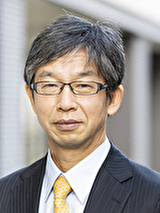Thinking about the future together.
In 2007, the world’s first human iPS cell line was established, opening up new possibilities in science and medicine.
Since then, major advancements have been made by scientists around the world in stem cell research and applications, including the fields of regenerative medicine and drug development.
On the other hand, emerging stem cell technologies have also raised new ethical challenges.
For example, stem cell technology makes it possible to grow human organs inside an animal body and to create humanized brains. Additionally, it may be possible for a same-sex couples or postmenopausal woman to have a child using gametes made from their own iPS cells.
However, just because a technology makes something possible, does not mean we should use it.
The above research examples lead to many questions. How should we treat animals that have humanized brains? To what extent can we use animals to produce human organs to save human lives? Furthermore, iPS cell technology may be fortunate for same-sex or infertile couples, but it may also change our views of reproduction. Stem cells are creating all sorts of ethical questions that how we answer will influence how the research proceeds.
Technology itself does not give us the answer.
How we value stem cell technology comes from contemplation and consultation.
The Uehiro Research Division for iPS Cell Ethics was established on April 1, 2013, as part of the Center for iPS Cell Research and Application (CiRA), Kyoto University, with funding from the Uehiro Foundation on Ethics and Education. We study the ethical issues of stem cell technology and regenerative medicine with consideration of current and future perspectives, and communicate these issues globally.
By addressing these issues, we attempt to present options that respect diverse thoughts and opinions.
Our research aims to make a better future for humanity and science.
Message from the Director of CiRA
 With iPS cell-based clinical research having made steady progress, we believe it is necessary to understand the public’s awareness of iPS cell research and to answer their various questions. By establishing the Uehiro Research Division for iPS Cell Ethics, we aim to build public trust in our research by studying the ethical issues that emerge from iPS cell research while keeping the public educated and informed on these matters.
With iPS cell-based clinical research having made steady progress, we believe it is necessary to understand the public’s awareness of iPS cell research and to answer their various questions. By establishing the Uehiro Research Division for iPS Cell Ethics, we aim to build public trust in our research by studying the ethical issues that emerge from iPS cell research while keeping the public educated and informed on these matters.
Jun Takahashi
Director, Center for iPS Cell Research and Application (CiRA), Kyoto University
Message from the Head of Division

New developments in science and technology bring us great hope, but at the same time they create ethical issues that cannot be judged as right or wrong using a conventional set of values. Sharing these ethical issues with the public and thinking about them together is an essential process so that science and technology can flourish. iPS cell technology is no exception. In addition to its amazing potential to save many patients, our aim is to identify and consider the ethical issues with the public.
Misao Fujita
Uehiro Research Division of Ethics, Center for iPS Cell Research and Application (CiRA), Kyoto University
Project outline
iPS cells were successfully generated from mouse cells in 2006 and human cells in 2007. Now, research on the clinical application of iPS cells is in full swing. Importantly, they avoid the ethical challenges of ES cells raised by the destruction of embryos, which allows us to do new experiments that raise ethical issues of their own. One is human-animal chimeric embryo research in which scientists create animals with human organs by infusing human iPS cells into animal embryos. The other is human gametogenesis research using human iPS cells. These research topics are underway for creating human organs to resolve organ shortages and to produce functional reproductive cells. However, there are concerns about the birth of a new species produced by crossbreeding human and other animals or the creation of human embryos from stem cell-derived gametes. To what extent should society accept these research goals? What regulations are required? Is there any research that should not be accepted? Establishing socially trustworthy novel technologies requires research on ethical challenges and open discussion with all stakeholders including the general public.
To address these concerns and more, the Uehiro Research Division for iPS Cell Ethics was established on April 1, 2013, as part of Kyoto University’s Center for iPS Cell Research and Application (CiRA), with funding from the Uehiro Foundation on Ethics and Education. The researchers in this division investigate the current perceptions of the ethical issues surrounding stem cell research by conducting attitude surveys using questionnaires and interviews, reviewing regulations and policies, and researching literature to clarify the issues and propose solutions. We are also involved in educational activities for researchers, students of all ages, and the general public. By focusing on the ethical issues surrounding stem cell research, we seek a primary role in bioethics research and education.
Our philosophy
Our members conduct internationally recognized research and teaching summarized as below:
- Hold constructive discussions about the ethical issues of stem cell research based on facts and data.
- Evaluate policies and regulations, clarify issues, and make corresponding recommendations to the relevant authorities.
- Communicate research results relating to the ethical issues of stem cell research internationally and train researchers who can conduct research from a broad perspective based on international trends.
- Offer information to the public about the ethical challenges surrounding stem cell research and provide opportunities for people to take an interest and think about these challenges.
- Respond to inquiries about the ethical issues of stem cell research from the public, researchers, government authorities, and the media.
Organization
Uehiro Research Division for iPS Cell Ethics is one of the five research divisions set up in CiRA.
By researching cell behaviors at the molecular level using iPS cell technology, the goal of the Department of Life Science Frontiers is to create new platforms for medical therapies. For instance, researchers at the department are elucidating the pathogenesis of cancer and the mechanisms of the immune system. In addition, the department is creating new biotechnologies to explore fundamental questions about cell growth and development.
The Department of Cell Growth and Differentiation seeks to develop methods for inducing pluripotent cells, such as iPS cells and ESCs, toward specific cell fates, such as bone, heart, brain and others. In addition, using model organisms, it conducts preclinical studies of the safety and efficacy of somatic cells differentiated from iPS cells for transplantation into various tissues in the hopes of contributing to the development of effective iPS cell therapies.
The Department of Clinical Application generates iPS cells from somatic cells generously donated to CiRA by patients afflicted with various genetic conditions and uses these cells to induce differentiation into various cell types as a platform for the study of disease etiology and mechanisms of pathology. It further uses patient-derived iPS cells in the search for and testing of candidate drug compounds and therapies.
The Department of Fundamental Cell Technology investigates issues regarding the regulation and oversight of research aimed towards future therapies using iPS cells. In addition to overseeing the operations of the Facility for iPS Cell Therapy (FiT), which maintains and provides clinical-grade iPS cells, it also works to develop culture methods for the generation of cells of assured quality. It further provides technical and facility support to other CiRA labs. The division both strives to establish reliable methods for iPS cell generation and maintenance within the institute, and to provide guidance to other researchers working around the world with these cells.
This division identifies the ethical, legal, and social issues surrounding stem cell research and makes proposals for how to handle these issues.
Please see here for details
